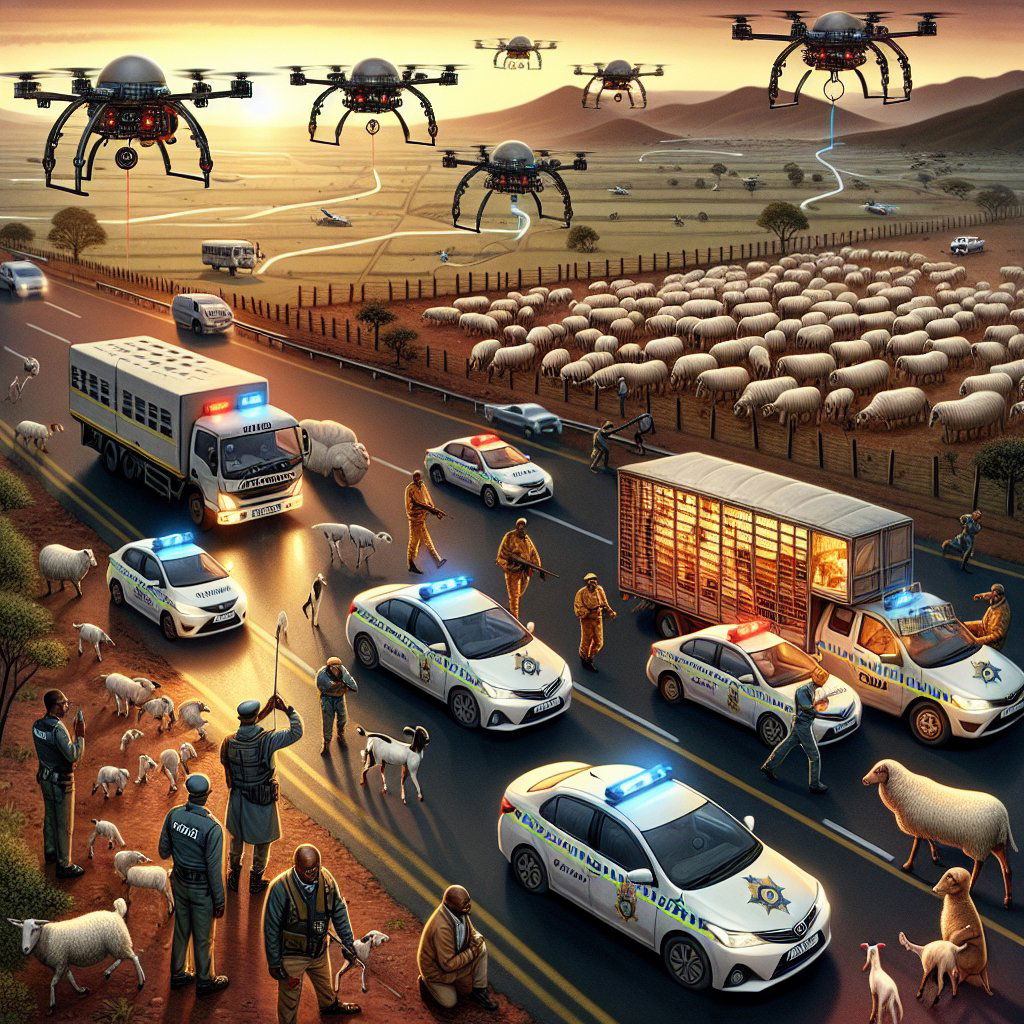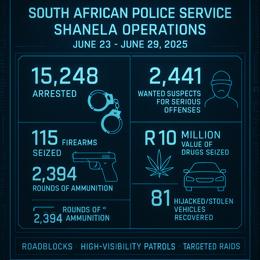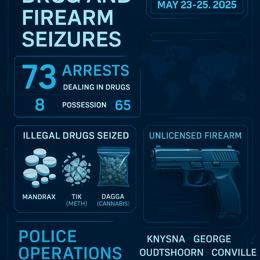Image created by AI
Crackdown on Livestock Theft: Eight Arrested in North West Province with Unmarked Goats and Sheep
In a significant win against rural crime, North West Province police's diligent efforts led to the arrest of eight individuals across two separate incidents. The operations unfolded in the early hours of Friday, 19 July 2024, exemplifying the unending battle against livestock theft, a prevalent issue affecting South African farmers.
Acting on a tip-off about a dubious vehicle on the N14 road (connecting Ventersdorp and Carletonville), Klerksdraal and Potchefstroom Flying Squad units intercepted two taxis laden with 30 sheep and 18 goats. The six suspects, aging from 23 to 45 years, found themselves unable to justify possession of the animals, leading to their immediate arrest. Scheduled to appear in the Ventersdorp Magistrates' Court on Monday, 22 July 2024, for possessing suspected stolen property, they face substantial legal challenges ahead.
In a similar scenario later that same evening, Boons police, vigilant during the patrol on the R509 (Derby to Magaliesburg corridor), identified and halted a suspicious Toyota Quantum taxi. Two passengers made a futile attempt to evade the law, but two others, aged 30 and 38, were less fortunate and landed in police custody. Their cargo consisted of 37 unmarked goats, again shrouded in dubious ownership. A session in the Koster Magistrates' Court awaits them on the same day as their cohorts, where they will be arraigned for possession of suspected stolen livestock.
Crucially, all recovered animals were unmarked. This absence of identification marks flouts the mandates outlined in the Animal Identification Act, 2002 (Act No 6 of 2002). It underscores a half-won battle, as successful prosecution often hinges on the ability to clearly identify livestock ownership. This lack of identifiable marks complicates the legal journey, leading to potential loss of cases and failing to provide justice for the affected farmers.
Authorities recommend, now with a louder clarion call, the urgent need for farmers to adopt and implement animal marking. Whether via a registered brand or tattoo, the marking of livestock serves as a definitive method of ownership confirmation, deterrence against theft and aids in the swift return of stolen animals to their rightful caretors. The police's plea not only surfaces in light of successful prosecutions but also arrives as a protective frontier for the agricultural community.
These stern warnings and legal actions reflect the broader implications and societal impact of livestock theft on South Africa’s rural economy. It cripples farmers, undermines food security, and fuels a black market that the nation seeks to extinguish. In this endeavor, community cooperation and observance of the law remain pivotal.










